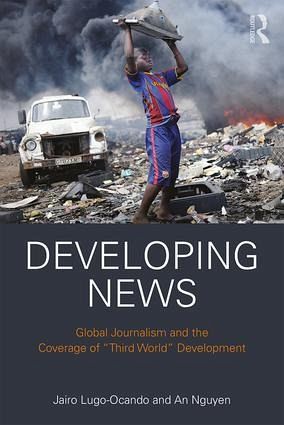
Developing News
Global journalism and the coverage of "Third World" development
Versandkostenfrei!
Versandfertig in 1-2 Wochen
176,99 €
inkl. MwSt.
Weitere Ausgaben:

PAYBACK Punkte
88 °P sammeln!
Developing News sets out to describe how development is articulated in the news and used by newspeople as an analytical category to explain the world. It is about examining development as a discourse that is based on the harmful contrast between the developed and the developing (or the underdeveloped) and that sets the boundaries for what is permissible to say. Jairo Lugo-Ocando and An Nguyen begin by discussing the news coverage of development that emerged as a news category for newspapers and broadcasters after World War II. They move on to examine the way development has been reported by th...
Developing News sets out to describe how development is articulated in the news and used by newspeople as an analytical category to explain the world. It is about examining development as a discourse that is based on the harmful contrast between the developed and the developing (or the underdeveloped) and that sets the boundaries for what is permissible to say. Jairo Lugo-Ocando and An Nguyen begin by discussing the news coverage of development that emerged as a news category for newspapers and broadcasters after World War II. They move on to examine the way development has been reported by the mainstream media, exploring the rationales and ideologies that determined and continue to define the way the media think about and represent development in the news. In doing so, the authors contribute to a better understanding of the relationship between the news agenda, news sources and the development policies that are set in the centres of power. This book is ideal for those studying and researching and studying issues to do with journalism and the "Third World". It may also be relevant for those students taking courses in global or international journalism, media and democracy, development studies or international politics. Above all, it is an invitation for journalists to rethink their own practice in representing international development and its component.














